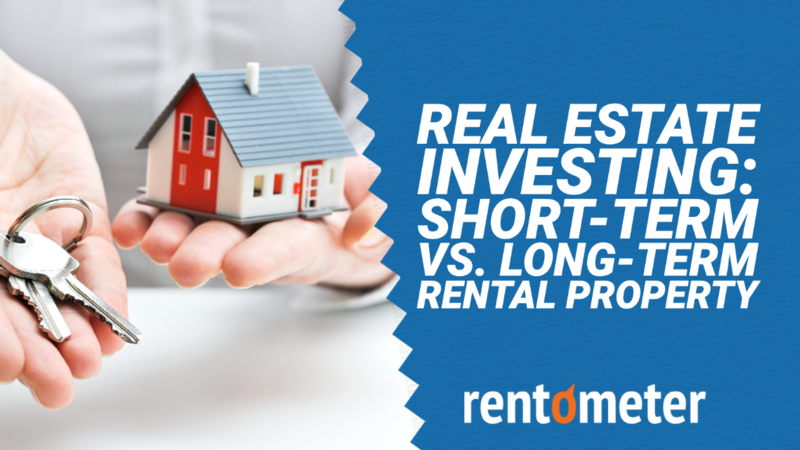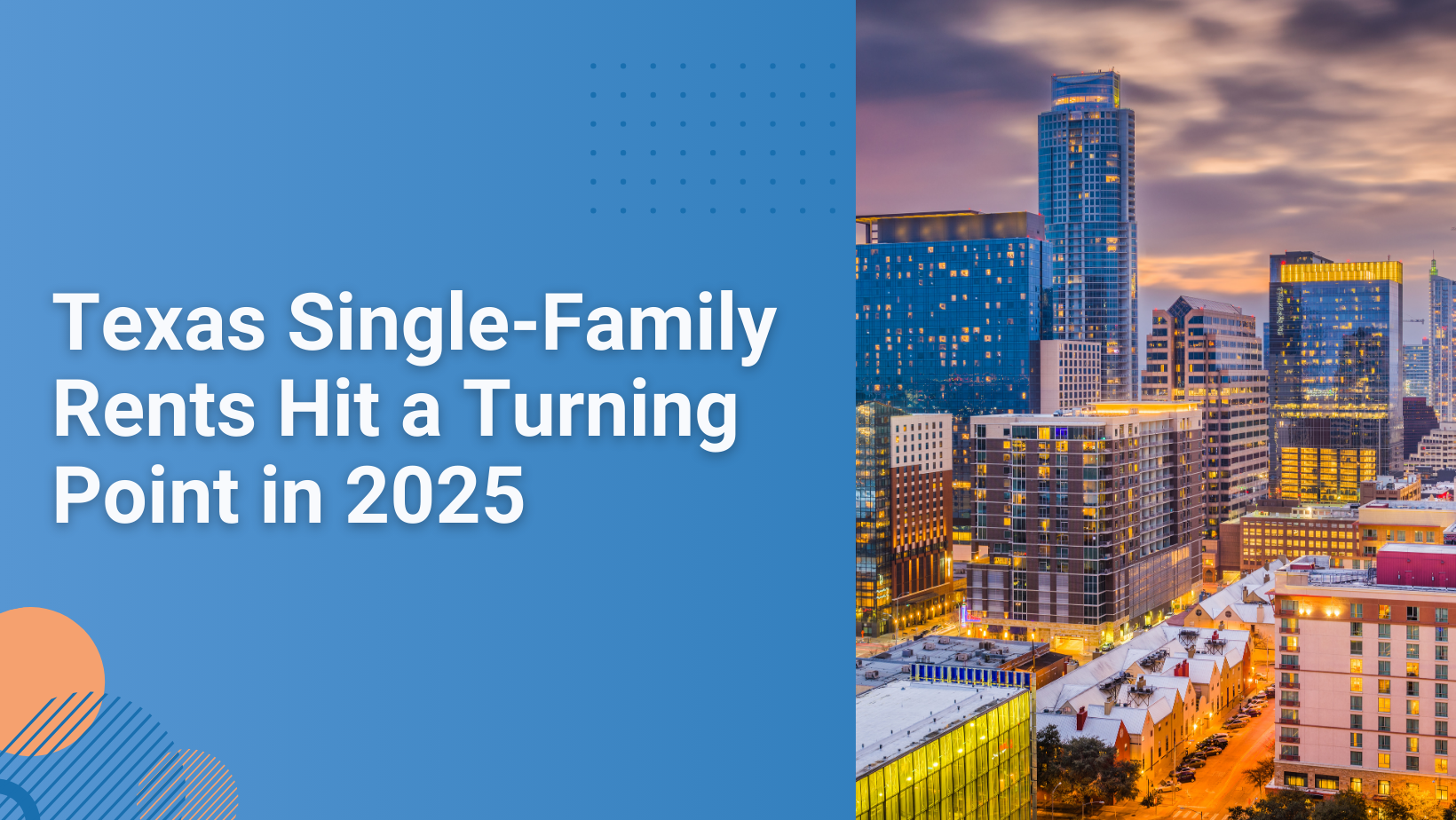
Real Estate Investing: Short-Term vs. Long-Term Rental Property


Every real estate investor must decide the investing strategy that fits their resources and aspirations. Two types of rentals to consider are long-term and short-term. Demand for these types of rentals have changed in recent times due to various factors, including prolonged housing supply shortages and increased work-location flexibility since the coronovirus outbreak in 2020.
While the short-term rental market saw its best year on record in 2021 with short-term rental earning 37.5% more revenue than the previous year, it’s important to consider a few differences between short and long-term rentals and how they might impact the properties you seek out (AirDNA).
Overview of These Property Types
A short-term rental property is a residential property typically rented out on a daily, weekly, or monthly basis. These properties are most commonly known as vacation rentals that individuals and groups booked through popular sites like Airbnb and Vrbo.
People renting for the short-term are usually either vacation-goers or working professionals looking for flexible housing opportunities in more favorable areas.
Stay connected
Get rental market insights delivered straight to your inbox.
A long-term rental property is a residential property typically rented out on an annual basis through a 12-month lease with longer-term tenants. Tenants usually rent for the long-term if they aren’t ready to buy, or if they want to live in an area where renting is a more desirable option due to high home prices or lack of properties for sale.
Long-Term Rental Properties
Long-Term Rentals – Yes Please!
Predictable Income
By having long-term tenants locked into a 12-month lease, your rental income will be more consistent and therefore predictable. Having stable monthly income might give some investors more peace of mind and reduce time spent on property management. It’s important to understand what the market rent rates are by using an online rental data tool, like Rentometer, to price your rental appropriately.
Less Management
With long-term rentals, you’ll have less tenant turnover. This means, you’ll have less administrative tasks to perform, such as listing and marketing the property and screening tenants than with short-term rentals.
Lower Costs
The cost of various expenses, such as utilities, can usually be made the responsibility of the tenant, reducing owner operating costs. Additionally, major deep cleans of the property may only be required when longer-term tenants move on. Lastly, with less tenant turnover, you may not need to spend as much on marketing the property since vacancies may be less frequent than short-term rentals.
For long-term rentals, property management fees typically range between 8-10% per month. This contrasts with higher maintenance short-term rentals, where fees generally range between 20-50% a month (Hostfully).
Long-Term Rentals – No Thanks!
Fixed Income
Longer lease terms can mean fewer opportunities to take advantage of higher rates and increase the property’s rent. Some areas may also have laws prohibiting rent increases, so it’s important to understand the laws around raising rents before investing.
Problem Tenants
The importance of placing the right tenant in your property cannot be overstated. While having a long-term tenant can offer more consistent rental income, finding high-quality tenants is of greater importance. The bad tenant can be time-consuming and costly.
Short-Term Rental Properties
Short-Term Rentals – Sure!
Adjustable Income
Shorter leases and frequent tenant turnovers can mean more opportunities to raise rent when market demand warrants an increase, giving owners more income potential.
Tenant Turnover
Having higher tenant turnover can be an advantage of short-term rentals as less-than desirable tenants won’t be around long and you won’t have to deal with the headaches and extra costs that come with having a bad tenant for long periods of time.
Easier to Maintain
Since tenants only stay on a short-term basis, the unit will be cleaned and maintained on a regular basis. It’s best practice to have the property thoroughly cleaned and inspected in-between each tenant. This regular upkeep ensures the property stays in good condition over the long-term, which may help avoid costly repairs that have gone unnoticed.
Short-Term Rentals – Doh!
Sporadic Income
Rental income isn’t as consistent for short-term rentals due to factors, including vacancy, seasonality, and competition. If you’re located in a beach town, the summers may be fully-booked, but have difficulty filling vacancies during winter months. This is something that should be accounted for in your evaluation of a short-term investment property opportunity.
Operating Expenses
With short-term rentals, you should expect to have higher operating expenses. Typically, tenants are not required to pay utilities and the responsibility falls on the landlord. Additionally, vacation rentals should be fully furnished and stocked. To accommodate for guest stays, you’ll be expected to provide amenities such as towels, bedding, toiletries, and kitchenwares – all the works.
External Factors
There are external factors that can cause the demand for short-term rentals to fluctuate. While we mentioned earlier that 2021 was the best performing year for short-term rental hosts to-date, it’s important to note that the start of the pandemic had an immediate negative impact on Airbnb where revenue was down 72% (Forbes). Some state and local governments even temporarily banned short-term rentals (CNBC).
Short-term rentals are also not recession-proof. During recessions, people have less disposable income and tend to cut back on discretionary spending. Ultimately, this means there may mean fewer people seeking short-term stays in destination locations until economic conditions improve.
Regulation Compliance
Some major cities across the US, such as New York, San Francisco, Las Vegas, and many more, have strict regulations governing short-term rentals. It’s important to check your state and local ordinances to ensure that your property is compliant with the regulations around owning and operating short-term rental property.
To Go Long or Short?

At the end of the day, both long-term and short-term rentals can be a good investment if the numbers work out. If you’re looking to earn more cash in the short-term and can tolerate more risk, then short-term rentals may be the way to go. If you’re looking to build wealth over the long-term and are more risk averse, then long-term rental properties might be the better option for you.
The type of investment strategy that you decide on is ultimately up to you. It’s important to make sure your decision aligns with your goals as an investor. As always, we recommend discussing investment opportunities with professionals such as financial advisors and local Realtors to gain a better understanding of local rental markets.
This article was written by the Rentometer Content Team. The Rentometer Blog features fresh takes and insights on rental housing topics, services, and technology.
Stay connected
Get rental market insights delivered straight to your inbox.

 LinkedIn
LinkedIn
 Facebook
Facebook
 Email
Email
 Twitter
Twitter
 Quickly evaluate current rents with QuickView™ Rent Estimates
Quickly evaluate current rents with QuickView™ Rent Estimates

